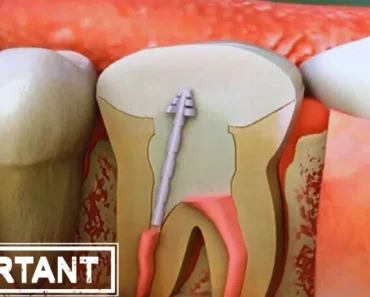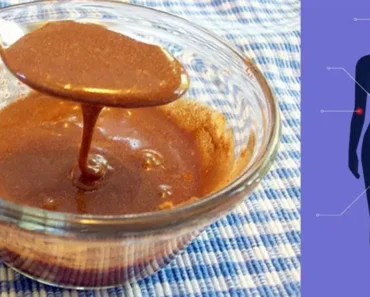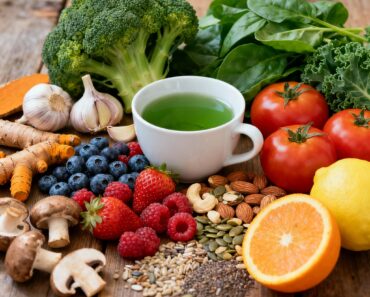Vitamin C, also known as ascorbic acid, is one of the most vital nutrients for human health – yet many people don’t get enough of it.
While severe deficiency (known as scurvy) is rare today, mild to moderate vitamin C deficiency is surprisingly common and often goes unnoticed for months.
Why Vitamin C Is So Important
Vitamin C does far more than just help fight off colds. It’s involved in dozens of critical body processes, including:
- Boosting immune function: Helps white blood cells fight infections more effectively.
- Producing collagen: Essential for healthy skin, joints, blood vessels, and connective tissues.
- Acting as an antioxidant: Protects cells from free radical damage and oxidative stress.
- Enhancing iron absorption: Especially important for preventing anemia.
- Supporting neurotransmitter production: Contributes to mood regulation and brain health.
Since the body cannot produce or store vitamin C, regular intake from fresh fruits and vegetables is essential to stay healthy.
1. Fatigue and Low Energy Levels
One of the earliest and most overlooked symptoms of vitamin C deficiency is chronic tiredness or feeling unusually weak, even with enough sleep.
Vitamin C is crucial for energy production inside your cells. Low levels can slow down the conversion of fat into fuel and interfere with carnitine synthesis, an amino acid that transports energy into your cells.
Additionally, vitamin C supports adrenal gland function – the glands responsible for producing stress hormones like cortisol and adrenaline.
When levels are low, your body may struggle to respond to daily stress, leaving you feeling drained and sluggish.
How to fix it: Add vitamin C–rich foods such as oranges, kiwi, bell peppers, strawberries, and broccoli to your daily meals. A fresh citrus smoothie in the morning can help jump-start your energy naturally.
2. Dry, Rough, or Bumpy Skin
Vitamin C plays a direct role in collagen production, the protein that keeps skin smooth, firm, and youthful.
Without enough vitamin C, collagen synthesis slows down – leading to dry, rough patches and a condition known as keratosis pilaris, where small, hard bumps appear on the upper arms, thighs, or cheeks.
Low vitamin C also weakens your skin’s natural barrier, making it more prone to irritation, inflammation, and dullness.
How to fix it: Eat more fruits like papaya, mango, citrus, and berries – all rich in vitamin C and skin-friendly antioxidants. Also, include leafy greens like kale and parsley to nourish your skin from within.
3. Easy Bruising and Slow Wound Healing
If you find that small bumps leave large bruises, or your cuts take longer than usual to heal, your body may be signaling a vitamin C shortage.
Vitamin C is essential for building strong capillaries and connective tissues. Without enough of it, blood vessels become fragile, causing bruises to form easily under the skin.
It also supports wound repair by helping form new collagen and scar tissue. Deficiency can delay healing, increase infection risk, and result in fragile scars.
How to fix it: Combine vitamin C–rich foods with those high in zinc (like pumpkin seeds or lentils) to promote tissue repair and faster recovery.
4. Frequent Colds and Weakened Immunity
While vitamin C can’t completely prevent infections, low levels definitely make you more susceptible to them.
This vitamin supports several immune functions:
- Stimulates the production of white blood cells.
- Strengthens the skin’s natural defense barrier.
- Acts as an antioxidant to protect immune cells from damage.
If you’re constantly battling colds, sinus infections, or sore throats, your immune system may be struggling due to insufficient vitamin C.
How to fix it: Include citrus fruits, kiwi, guava, and red bell peppers daily – they contain more vitamin C than oranges! Also, drink lemon water or hibiscus tea to naturally boost your immunity.
5. Bleeding Gums and Dental Problems
Bleeding gums are a classic sign of vitamin C deficiency. This happens because the collagen in gum tissue weakens, leading to inflammation and easy bleeding, even with gentle brushing.
In severe cases, gums may recede or swell, and teeth can loosen over time – early signs of scurvy. Vitamin C also plays a role in fighting bacteria and preventing plaque buildup, so deficiency can worsen oral health overall.
How to fix it: Brush gently with a soft toothbrush and include more raw fruits and vegetables in your diet. Fresh parsley, kale, and oranges are particularly beneficial for gum strength.
6. Swollen, Painful Joints
Persistent joint pain or swelling could be linked to low vitamin C levels. The nutrient is vital for maintaining the collagen and cartilage that cushion joints and prevent stiffness.
Deficiency can lead to joint inflammation, similar to arthritis symptoms, due to poor tissue repair and increased oxidative stress. In advanced cases, even small movements can become painful.
How to fix it: Eat anti-inflammatory foods like citrus, pineapple, turmeric, and spinach. Drink plenty of water and consider a vitamin C supplement if your diet is lacking fresh produce.
7. Brittle Hair and Nails
Vitamin C protects hair follicles and nail beds from oxidative stress. It also helps your body absorb iron, which is essential for strong hair and nails.
When your body is low in vitamin C, you might notice dry, brittle hair, split ends, and weak nails that break easily.
Additionally, reduced collagen production can cause hair to lose elasticity and shine, while slower circulation means fewer nutrients reach the follicles.
How to fix it: Snack on citrus fruits, kiwis, and papayas daily. Consider adding rosehip or amla (Indian gooseberry) powder to smoothies for a natural vitamin C boost.
8. Mood Changes and Irritability
Low vitamin C levels don’t just affect your body – they can influence your mood as well.
The brain uses vitamin C to produce neurotransmitters like dopamine and serotonin, which regulate mood and stress response. Deficiency can lead to increased irritability, mild depression, or anxiety-like symptoms.
Studies show that supplementing with vitamin C can improve mood, reduce fatigue, and support better mental clarity in people who were previously deficient.
How to fix it: Balance your meals with fresh fruits, complex carbs, and healthy fats. Stay hydrated and spend time outdoors – both sunshine and nature support mental wellness.
9. Weak Immunity and Frequent Infections
Vitamin C is one of the body’s strongest defenders against oxidative damage. Low levels compromise immune response and increase the risk of chronic inflammation.
If you find yourself getting frequent infections, feeling run-down, or taking longer to recover from illnesses, your immune cells might not be getting the vitamin C they need to function effectively.
How to fix it: Drink freshly squeezed citrus juice, eat raw bell peppers or kiwi, and consider supplementing during flu season for extra protection.
How Much Vitamin C Do You Need Each Day?
The Recommended Daily Allowance (RDA) for vitamin C varies by age and gender:
- Women: 75 mg per day
- Men: 90 mg per day
- Smokers: Add 35 mg more (smoking depletes vitamin C levels rapidly)
During illness, stress, or exposure to pollution, your needs may increase because your body uses vitamin C faster to combat inflammation and free radicals.
In general, it’s best to get vitamin C from food rather than supplements whenever possible, as fresh produce contains other synergistic nutrients that enhance absorption.
Best Natural Sources of Vitamin C
Here are some of the richest natural food sources of vitamin C – many of which contain more than oranges:
| Food | Vitamin C (mg per 100g) | Notes |
|---|---|---|
| Acerola cherries | 1,677 mg | One of the world’s most potent natural sources |
| Rose hips | 426 mg | Can be made into tea or powder |
| Guava | 228 mg | Boosts immunity and digestion |
| Blackcurrants | 180 mg | Excellent antioxidant source |
| Kiwi | 92 mg | Promotes healthy skin and sleep |
| Red bell pepper | 128 mg | More vitamin C than citrus fruits |
| Strawberries | 59 mg | Great for heart and skin health |
| Papaya | 60 mg | Aids digestion and liver detox |
| Citrus fruits | 50–70 mg | Classic immune-boosting choice |
| Kale | 120 mg | Excellent plant-based source for vegans |
Tip: Vitamin C is heat-sensitive and water-soluble. Eat fruits and vegetables raw or lightly steamed to preserve their nutrient content.
Your body sends signals when something is missing – you just need to listen.
Fatigue, bleeding gums, dull skin, or frequent infections could all be whispers from your body asking for more vitamin C.





